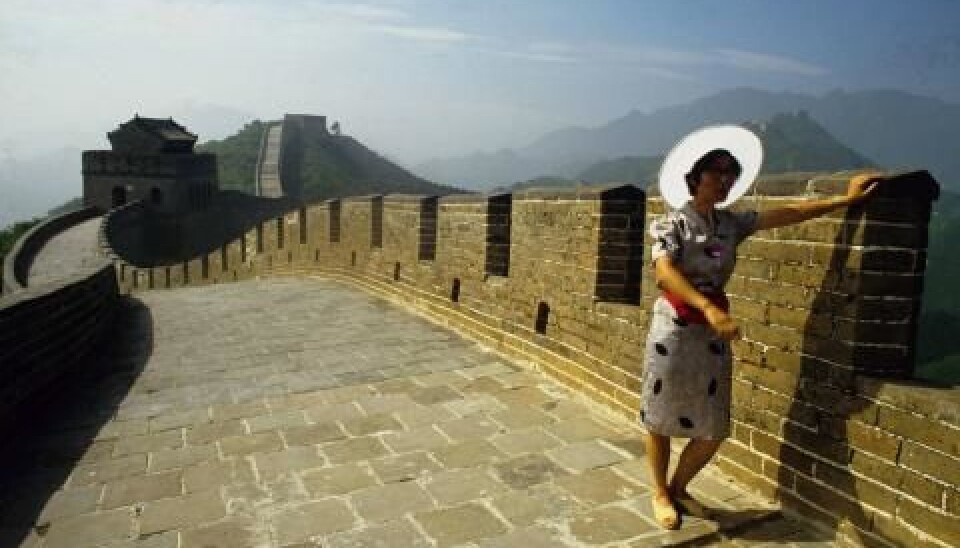
Strong states resisted democracy
There is a strong link between the age of states and the European influence they have been exposed to, says new study.
Old states outside of Europe are, statistically speaking, less democratic than newer states. The more organised a state was when European colonisers arrived around the year 1500, the less democratic it is today.
This is the startling conclusion of a new PhD thesis, which was the feature story in a recent edition of the prestigious journal American Political Science Reviews.
Titled, ‘The Autocratic Legacy of Early Statehood’, it’s written by Jacob Gerner Hariri, a postdoc at Copenhagen University.
”Pre-colonial state development in itself has had a negative influence on the development of democracy because territories with strong, state-like institutions were better at resisting the Europeans,” says Hariri.
We have long known that countries rich in natural resources such as oil or diamonds are less democratic and that well-educated and richer countries are more democratic. What we did not know, however, was that early states were less democratic.
“And thus they were also better at guarding themselves against democratic currents from Europe.”
Early states are less democratic
His discovery is remarkable because it identifies a new basic factor in a country’s ability to develop democracy. This is a question that a host of social scientists have grappled with, but most of them have struggled to find any reliable, evidence-based conclusions about it.
Hariri’s findings are exceptionally solid: he has analysed 111 countries outside of Europe with statistical material from four different democracy indices. All four democracy indices led to the same conclusion, even after numerous control experiments. The thesis also has a wide scope in relation to other factors.
“We have long known that countries rich in natural resources such as oil or diamonds are less democratic and that well-educated and richer countries are more democratic. What we did not know, however, was that early states were less democratic,” he says.
Too strong for the Europeans
The Europeans ‘exported’ early democratic institutions, and the countries that were strong enough to keep the European influence out therefore became less democratic in their structure.
The primary reason is that the early states were simply strong enough to fight off the Europeans when they arrived there.
“The Europeans ‘exported’ early democratic institutions, and the countries that were strong enough to keep the European influence out therefore became less democratic in their structure.”
He mentions China and several Middle East state as examples, and adds:
“The oldest state in Africa south of the Sahara, Ethiopia, is also the only African country that’s never been colonised over a long period.”
The colonisers who migrated from Europe kept a keen eye on what has happening in Europe while they were away. And if some rights were established in the mother country, they demanded the same rights in the colonies. This is how democracy was exported.
Other countries such as India and many Middle East states had strong state formations – but not strong enough the keep the Europeans out.
Here the colonisers seized control of the existing state apparatus and used it to suppress the population. To this ruling group, the import of European political institutions and ideas thus became superfluous.
New countries listened to the Europeans
Just as strong as the correlation in the researcher’s data is between strong states and weak democracies is the correlation at the opposite end of the spectrum. Here we find countries such as the US, Canada, Australia and New Zealand, which didn’t have any organised state formation prior to the arrival of the Europeans, but which today have some of the best-functioning democracies outside of Europe.
According to Hariri, this is due to the apparent fact that colonisers in these territories could ‘start from scratch’, and could without much effort build up their own states of imported European institutions and ideas, including democracy and human rights.
“The colonisers who migrated from Europe kept a keen eye on what has happening in Europe while they were away,” says the researcher.
“And if some rights were established in the mother country, they demanded the same rights in the colonies. This is how democracy was exported.”
The colonial era important for democratisation
Since Hariri's findings shed light on a hitherto obscure point in democracy research, they also raise a series of new questions. They indicate for instance that democracy is not a natural stage of development that every state will reach by itself. It has required external influence, and in several places it has also required a ‘blank slate’ from which to start.
”This could mean that perhaps we need to adopt a new view of the colonial era. Even though it led to massive exploitation and oppression of many people in the Third World, we can now see that it also contributed to the spread of democracy,” he says.
”’State’ and ’democracy’ are the two biggest concepts we have in political science – perhaps even in the entire field of social sciences. So it’s a pretty big thing to demonstrate that one of the concepts, the state, historically has had a negative causal effect on the spread of democracy.”
----------------------------------------
Read the Danish version of this article at videnskab.dk
Translated by: Dann Vinther








